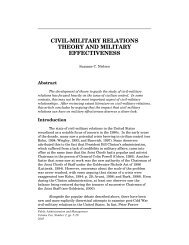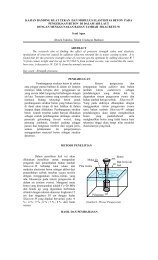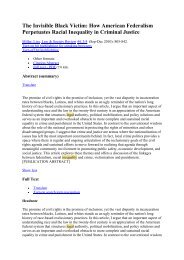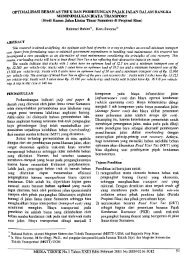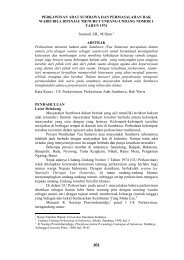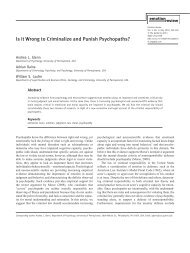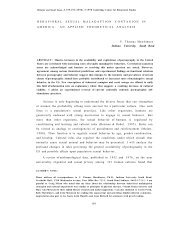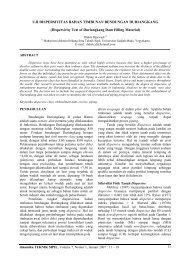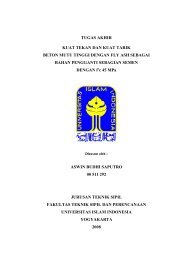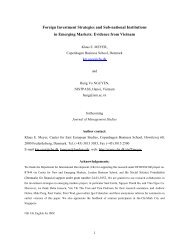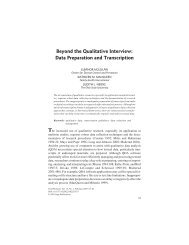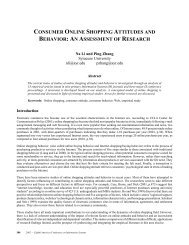Ski – resort and regional development: profile of visitors ... - E-Journal
Ski – resort and regional development: profile of visitors ... - E-Journal
Ski – resort and regional development: profile of visitors ... - E-Journal
Create successful ePaper yourself
Turn your PDF publications into a flip-book with our unique Google optimized e-Paper software.
30<br />
trip; the evolution <strong>of</strong> intrinsic motivation to learn; the interest in tasks that imply learning;<br />
<strong>and</strong> experiential learning (Roberson, 2002). Additionally, one major reason for educational<br />
travel abroad is the opportunity to learn <strong>and</strong> interact with other cultures (Byrnes, 2001).<br />
This paper reflects the results <strong>of</strong> several studies undertaken by a language travel study group<br />
at EPS G<strong>and</strong>ía College in Valencia from 2002 to 2006. The central assumption is that there<br />
is a significant difference in summer courses abroad today between those that can be considered<br />
to follow tourism practices (language tourism) whose main goal is entertainment, <strong>and</strong> language<br />
trips aimed at learning the language. Each type has its benefits <strong>and</strong> drawbacks <strong>and</strong>, indeed,<br />
its customers with differentiating features from each other. According to Engle <strong>and</strong> Engle<br />
(2000) there is an increasing shift between longer educational stays abroad to shorter courses<br />
or sessions (2000; 2006) maybe as a "result <strong>of</strong> institutional pressure to increase study abroad<br />
numbers" (Engle <strong>and</strong> Engle, 2006: 220) or as continuous effort to make experiences abroad<br />
accessible to more students. However, there are drastic differences between long educational<br />
stays <strong>and</strong> shorter trips. As they mention:<br />
"It is undeniable that there are fundamental differences in the academic <strong>and</strong> cultural<br />
experience <strong>of</strong>fered by study abroad programs today. We consider that the creation <strong>of</strong><br />
a level-based classification system for program types would address this situation<br />
honestly <strong>and</strong> responsibly. Compare, if you will:<br />
• a one-month summer term, requiring little or no host language pr<strong>of</strong>iciency, with<br />
subject-matter classes in English, collective housing <strong>and</strong> American roommates; with<br />
• a full-year program for students <strong>of</strong> advanced linguistic pr<strong>of</strong>iciency housed individually<br />
in a host family <strong>and</strong> directly enrolled in local university courses or engaged in a<br />
pr<strong>of</strong>essional internship or service learning project." (Engle <strong>and</strong> Engle, 2000: 3).<br />
According to this changing trend, this paper revises the following issues: 1) study abroad as<br />
a type <strong>of</strong> tourism, 2) Its impact in the international economy (<strong>and</strong> specifically in the British<br />
one), 3) Importance <strong>and</strong> differences between language travel <strong>and</strong> language tourism, 4) current<br />
issues associated to language tourism, <strong>and</strong> 5) effects in language learning. The paper concludes<br />
that the language learning <strong>of</strong> language tourism trips could be lower due to the social activity<br />
component making the trip pr<strong>of</strong>itable only in specific circumstances <strong>and</strong> with younger <strong>and</strong><br />
inexperienced students.<br />
STUDYING ABROAD<br />
The 2 to 4 week language trip has been recommended for a long time partly because <strong>of</strong> the<br />
need <strong>of</strong> acquiring a second language (Freed, So & Lazar, 2003). <strong>and</strong> partly as a life experience<br />
or what has recently called “serious leisure” 1 In the 1960s many researchers recommended<br />
1 “Serious leisure is the systematic pursuit <strong>of</strong> an amateur, hobbyist, or volunteer core activity that is highly substantial,<br />
interesting, <strong>and</strong> fulfilling <strong>and</strong> where, in the typical case, participants find a career in acquiring <strong>and</strong> expressing a<br />
combination <strong>of</strong> its special skills, knowledge, <strong>and</strong> experience (Stebbins, 1992, p.3)”.[Retrieved from<br />
http://www.soci.ucalgary.ca/seriousleisure/MainPages/BasicConcepts.htm].<br />
Tourism Today - Fall 2007 - Full Paper



